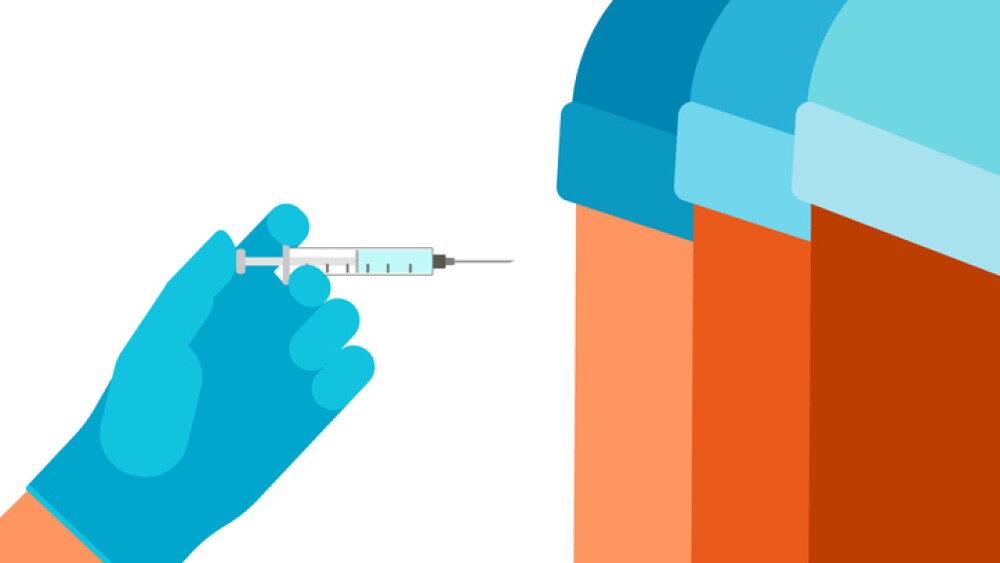TOKYO--(BUSINESS WIRE)--Sosei Group Corporation (“Sosei”) (TOKYO:4565) is pleased to announce that its wholly-owned subsidiary Heptares Therapeutics (“Heptares”) has reported the positive outcome of its Phase 1a study with HTL9936, the first-ever fully selective muscarinic M1 receptor agonist to enter clinical development.
“HTL9936 was designed and developed specifically to be a first-in-class oral agent to improve cognitive function (memory and thinking abilities) in patients with serious neurological diseases, such as Alzheimer’s disease and dementia”
The Phase 1a study assessed the safety, tolerability and pharmacokinetics of HTL9936 in relation to dose in 84 healthy volunteers, while also evaluating preliminary signs of efficacy (increase in brain activity). Key findings were:
- Early evidence of increased brain activity, as measured by electroencephalography (EEG), was seen after dosing and gave signals similar to those seen with other cognitive enhancing agents1,2.
- HTL9936 was well tolerated at drug levels that result in the increased brain activity observed without side effects.
- HTL9936 demonstrates good penetration into the brain, as indicated by levels found in cerebrospinal fluid.
- M1 selectivity was demonstrated with, unlike earlier muscarinic agonists3, no adverse effects seen from stimulation of other muscarinic receptors.
These preliminary data suggest that the selective M1 agonist product profile of HTL9936 predicted from preclinical studies translates to humans. Heptares is now putting in place a series of further clinical studies with the objective of demonstrating clinical proof of concept in patients, and moreover is advancing its diverse portfolio of follow-on selective muscarinic agonists that target M1, M4, and both M1/M4 to the clinic.
“HTL9936 was designed and developed specifically to be a first-in-class oral agent to improve cognitive function (memory and thinking abilities) in patients with serious neurological diseases, such as Alzheimer’s disease and dementia,” said Tim Tasker, Chief Medical Officer of Heptares. “We are therefore delighted with the outcome of this first clinical study, the results of which provide important validation of our GPCR-directed structure-based design platform and approach to create important new medicines in areas of unmet need. We look forward to advancing HTL9936 and the M1 agonist programme into further clinical studies to confirm the efficacy and safety observed.”
-Ends-
Notes to Editors
About M1 Receptor Agonism
M1
receptor agonism is a well-validated mechanism of action for treating
cognitive impairment and a valuable pharmacological profile that the
pharmaceutical industry has endeavored to create for decades. The
principal challenge has been to engineer selective compounds that
activate the M1 receptor subtype without also activating the M2
or M3 receptors, which are associated with undesirable side
effects. All previous compounds have been discontinued due to inadequate
selectivity. Using a new structure-guided approach, Heptares scientists
determined for the first time the x-ray crystal structure of the M1
receptor in its agonist conformation and used these unique insights into
the receptor drug binding site to identify new chemistries with fully
selective M1 agonist profiles.
About Alzheimer’s Disease and Other Disorders of Cognitive Impairment
Today
there is significant unmet medical need and heavy economic burden across
multiple diseases characterised by cognitive impairment and dementia. In
Alzheimer’s disease, currently available drugs provide limited and
transient effects on cognition. Healthcare costs associated with the
epidemic of AD, including nursing home care, continue to grow
dramatically and new therapies with better and more durable efficacy are
urgently needed. In addition, an estimated 80% of schizophrenics suffer
from cognitive impairment4 and 1.3 million patients in the US
suffer from Lewy body dementia5. Currently there are no
approved therapies for treating cognitive impairment in schizophrenia or
for treating Lewy body dementia.
About Heptares Therapeutics
Heptares is a clinical-stage
company creating transformative medicines targeting G protein-coupled
receptors (GPCRs), a superfamily of 375 receptors linked to a wide range
of human diseases. Its proprietary structure-based drug design
technology enables Heptares to engineer drugs for highly validated, yet
historically undruggable or challenging GPCRs. Using this approach,
Heptares has built an exciting pipeline of new medicines with the
potential to transform the treatment of Alzheimer’s disease,
schizophrenia, ADHD, migraine, addiction, metabolic disease and other
indications. Heptares pharmaceutical partners include Cubist, MorphoSys,
Takeda, AstraZeneca and MedImmune. For more information about Heptares,
please visit www.heptares.com
and www.sosei.com/en/.
HEPTARES is a registered trademark in the EU, Switzerland, US and Japan;
About Sosei
Sosei is a biopharmaceutical company originating
from Japan but with global presence. Sosei’s primary business model is
based on identifying novel and/or differentiated product assets or
technology platforms and, through supporting these in preclinical and
clinical development and establishing commercial partnerships, advancing
new medicines to patients worldwide. For more information about Sosei,
please visit www.sosei.com/en/.
|
References: |
||
| 1. | Chang YS et al. Parallel improvement of cognitive functions and P300 latency following donepezil treatment in patients with Alzheimer's disease: a case-control study. J Clin Neurophysiol. 2014 31(1):81-5. | |
| 2. | Werber EA et al. The clinical use of P300 event related potentials for the evaluation of cholinesterase inhibitors treatment in demented patients. J Neural Transm. 2003 110(6):659-69 | |
| 3. | Bodick NC et al. Effects of xanomeline, a selective muscarinic receptor agonist, on cognitive function and behavioral symptoms in Alzheimer disease. Arch Neurol. 1997 54(4):465-73. | |
| 4. | Schretlen DJ, Adv Stud Med. 2007;7(3):72-78 | |
| 5. |
Lewy Body Dementia Association, Inc. www.lbda.org |
|
Forward-looking statements
This press release contains
forward-looking statements, including statements about the discovery,
development and commercialisation of products. Various risks may cause
Sosei’s actual results to differ materially from those expressed or
implied by the forwardlooking statements, including: adverse results in
clinical development programmes; failure to obtain patent protection for
inventions; commercial limitations imposed by patents owned or
controlled by third parties; dependence upon strategic alliance partners
to develop and commercialise products and services; difficulties or
delays in obtaining regulatory approvals to market products and services
resulting from development efforts; the requirement for substantial
funding to conduct research and development and to expand
commercialisation activities; and product initiatives by competitors. As
a result of these factors, prospective investors are cautioned not to
rely on any forward-looking statements. We disclaim any intention or
obligation to update or revise any forward-looking statements, whether
as a result of new information, future events or otherwise.
Enquiries:
Sosei Group Corporation
Tokyo Office
Milica
STOJKOVIC, +81-(0)3-5210-3399
Corporate Communication
mstojkovic@sosei.com
London
Office
Kathryn LYDON, +44-(0)20-7691-0983
Corporate
Communication
klydon@sosei.com




